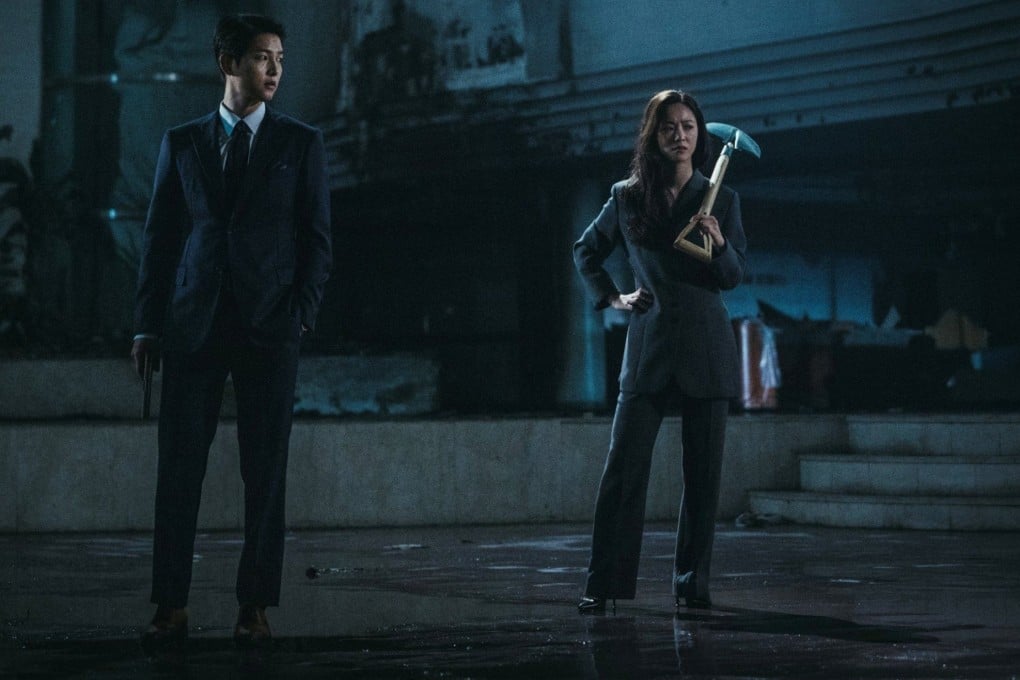What a view | Netflix show Vincenzo: what happens when K-drama meets The Godfather
- Song Joong-ki plays the eponymous Vincenzo Cassano, a ruthless consigliere bent on making mortal enemies of his adoptive tribe
- Once he’s returned home to Korea he finds himself cast as the unlikely saviour of a mall

Opposites usually attract when it comes to on-screen, odd-couple combos: Starsky and Hutch, Mulder and Scully, Turner and Hooch. But whoever saw the potential for television gold in a Korean-Italian cultural clash was mining a rare vein of insight.
Vincenzo (Netflix, series one now streaming) opens – after an explosive prologue – on a freshly scrubbed Korean lawyer for an Italian Mafia family (Song Joong-ki as the eponymous Vincenzo Cassano), oodles of expensive Roman real estate and sunny vistas of future Frascati. The cinematography is sumptuous, the overtones of The Godfather unmistakable. Vincenzo, an impassive, ruthless consigliere, seems bent on making mortal enemies of his adoptive tribe … not that it matters (for now), because he’s on his way back to his ethnic homeland and into a production that quickly becomes much more than the sum of its disparate inspirations.
Ingeniously combining parts that elsewhere might have seemed clumsily bolted on, Vincenzo morphs into a comedy-thriller with mystery characteristics, threats of gang violence and ideologically opposed father-and-daughter lawyers holding screaming matches over their legal documents.
Jeon Yeo-bin is irascible lawyer Hong Cha-young. She represents wealthy but unprincipled clients and finds herself bamboozled by Vincenzo, who realises he has been cast as the unlikely saviour of mall tenants victimised by an unscrupulous developer. Theirs is an antipathy-based relationship – so romance should bloom sooner or later.
In the meantime, Vincenzo – keeping his organised crime past concealed from his fellow Koreans, but still on tap should he need it (which he does) – must marshal a snack-bar proprietor, a music teacher, the owner of a dry-cleaners, monks in a makeshift temple and a truth-shy chef at a pizza restaurant, who is as authentically Italian as American mozzarella. The poster boy of this ragtag crew, however, is Yang Kyung-won as a goofy, beanie-hatted pawnshop hand who talks a good martial-arts scrap with the developer’s goons, but is short on moves and any sort of skill.
As a smooth operator of sometimes questionable morality himself, Vincenzo isn’t about to tell his new friends the real motive for his interest in the battle to safeguard their livelihoods. Nevertheless, Vincenzo is ultimately a redemption story; so if he can slap down a few bad guys on his way to a clutch of karmic mileage points, he’ll soon be upgrading his membership to platinum.
